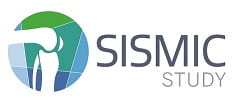A Randomised Controlled Trial of Scaffold InSertion and MIcrofracture Compared to Microfracture Alone for the Treatment of Chondral or Osteochondral Defects of the Knee (The SISMIC Study)
Funder: NIHR HTA
Funder reference: NIHR127849
Sponsor: North Bristol NHS Foundation Trust
Status: In set-up
Knee injuries are common and can lead to pain and disability. Injuries to the smooth cartilage that lines the ends of the bone in joints can cause ongoing problems as the cartilage does not have a blood supply and rarely heals once injured. 10,000 people a year in the UK have a severe articular cartilage injury that warrants surgical treatment. There are two main ways in which these injuries can be treated surgically, the first is to try to address the symptoms without trying to restore the cartilage; such as cleaning (debriding) the area or replacing the damaged area with an implant. The other way is to try to repair or restore the cartilage in the damaged area. Cartilage does not grow back on its own, so an operation known as “microfracture” can be done to encourage the cartilage to grow. A surgical tool is used to make perforations in the bone in the damaged area which allows blood and bone marrow to seep out of the holes, encouraging healing. A “scaffold”, which is usually made of the same material that makes up most of the cartilage (collagen), can be added, termed Autologous Matrix-Induced Chondrogenesis (AMIC). The scaffold is secured in place and acts as a template for new cartilage to form on. It is not clear if using a scaffold improves the outcome for patients. Using scaffold makes the operation more complex (approximately 20 minutes longer) and the cost of the scaffold adds approximately £900, so it is important to establish if adding a scaffold results in a better outcome for patients and is cost-effective for the NHS.
The study will find out whether adding the scaffold is worthwhile or not for patients with knee articular cartilage injuries. Over 2 years we will aim to recruit 176 patients from at least 16 hospitals, who will be randomised into two equal sized groups. One group will have microfracture alone and the other will have microfracture plus scaffold (AMIC). Everything else will be the same for all patients. Both groups will be followed for 2 years by clinical review and questionnaire and information about quality of life, the symptoms and pain in the knee, complications of surgery, need for further surgery and costs to the NHS and patients will be collected.
Funder acknowledgement: This study is funded by the National Institute for Health Research-Health Technology Assessment Programme (NIHR127849). The views expressed are those of the author(s) and not necessarily those of the NHS, the NIHR or the Department of Health and Social Care.
Contact Information
Chief Investigator: Michael Whitehouse
E-mail: sismic-study@bristol.ac.uk

